SUMMARY
This is AI generated summarization, which may have errors. For context, always refer to the full article.
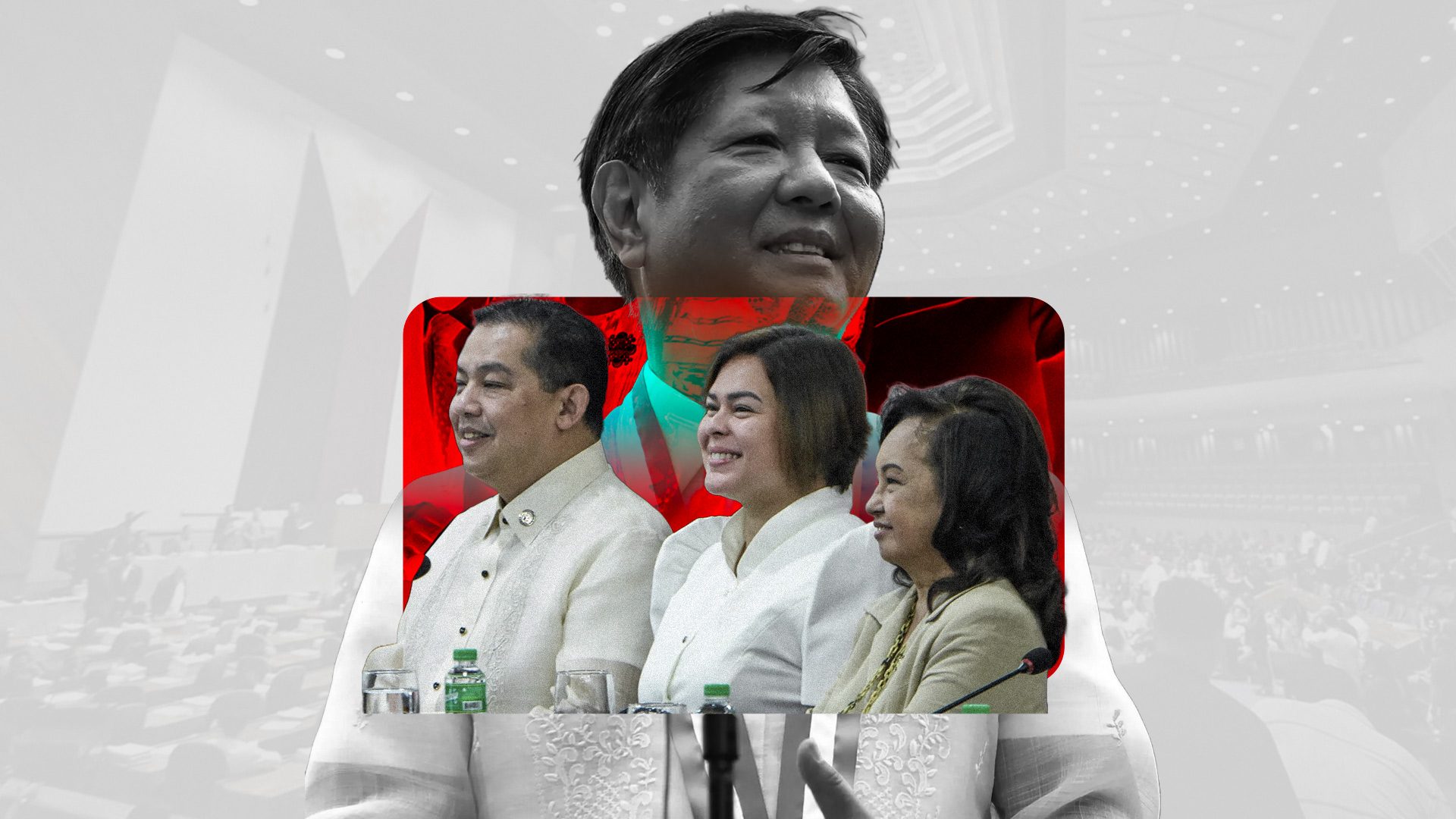
Starting July, I will be writing this newsletter twice a month as I will be spending some time on another platform, TikTok. There, I will resume a show that started during the 2022 presidential election campaign, “Hindi Ito Marites.”
In the realm of politics, a week – even a few days – is a long time.
What happened in May – when House Speaker Martin Romualdez preempted a supposed move to oust him by cutting Gloria Macapagal Arroyo to size from being the sole “senior deputy speaker” to plain deputy speaker – has had and will continue to have repercussions beyond Congress. (Arroyo denied such a plot.)
Immediately, Vice President Sara Duterte, in a show of support for her beleaguered ally, quit the Lakas-CMD party, of which Romualdez is president. Arroyo, however, remained as chair emeritus.
As we know, Arroyo and the young Duterte, who was mayor at the time, were partners in unseating then-Speaker Pantaleon Alvarez in 2018 – after which Arroyo took over the House leadership post.
This recent drama in Congress, led by Romualdez – the President’s cousin, frequent travel companion and a visible figure by his side in many official events – sent a signal that Marcos was an indirect target.
Early fracture
In Marcos’s first year in office, political consolidation is where he emerged weak. He has failed to be the glue in the alliance that brought him to power.
Many expected the loose alliance of political parties that backed him to fracture. After all, the so-called “uniteam” was stitched together by personalities with no common ideology nor programs.
But not this early. Marcos had not even marked the first year of his presidency when the knives were pulled out.
A politician who knows Marcos described the President as a “political loner,” lacking a solid political party. He ran under the marginal and little-known Partido Federal ng Pilipinas (PFP) which became part of the “uniteam.” When he won, there was no mad rush to join the PFP; it gained only a few members, mainly local politicians.
Marcos confidently banked on the 31 million votes he garnered, thinking these could carry him through the “snake pit” (Imee Marcos’s words) that is Malacañang. He also appeared to ride the wave of his 78% approval rating (as of March 2023), which is not a surprise; a high rating is expected during a president’s first year in office.
Amid these positive numbers and his warm reception by overseas Filipinos in his many foreign trips, what Marcos failed to anticipate were the actions of potential political adversaries eyeing the midterm and presidential elections.
Family and nostalgia
Two factors account for Marcos’s scant attention to building his political base: his fixation on projecting his family on the national and international stage and his drive to shore up his late father’s reputation.
Marcos appears to devote his efforts to building up his family – his son, 29-year-old Sandro, a newbie congressman who holds the title of senior deputy majority leader, and his cousin, Speaker Romualdez. (Senator Imee Marcos, chair of the foreign relations committee, is out of the picture.)
Notice that Marcos included Sandro in his meetings in New York in September last year: with President Biden at the sidelines of the UN General Assembly and with CEOs of US corporations. In Singapore, his parents brought along Sandro to a breakfast meeting that was supposed to be for the heads of state and their spouses.
Romualdez is never far behind. He is a constant presence in Marcos’s overseas trips. When the President lost his voice in Brussels during the inaugural ASEAN-EU summit, it was Romualdez who took his place and presided over a media briefing.
The President is also driven by personal nostalgia, his gaze cast on the past as he draws from the experiences of his discredited father. He has brought back the Kadiwa stores, where prices of produce are said to be lower as they do not pass through any middleman; the Masagana program to boost rice production; and named an investment fund Maharlika. Maharlika was the supposed anti-Japanese guerrilla unit that the late dictator claimed he led during World War II but which turned out to be non-existent.
Marcos the son cannot help himself: he is fixated on redeeming his father’s image, a leader with more past than future.
Enter KNP
Marcos’s allies see a political vacuum and, as the ruling coalition is becoming tenuous, politicians led by Albee Benitez, former congressman and now mayor of Bacolod City, have deserted PDP-Laban to form the Kilusan ng Nagkakaisang Pilipino or KNP. While the late president had KBL or the Kilusan ng Bagong Lipunan, some in the KNP like to hark back to the olden days and say this “movement” could be President Marcos’s political vehicle in the upcoming midterm election.
KNP could form an alliance with Romualdez’s Lakas-CMD in preparation for the 2025 election.
Benitez is the son of the late Jose Conrado “Jolly” Benitez, a member of the late dictator’s Cabinet. It is uncanny that a second-generation Benitez surfaces to rescue Marcos from the political doldrums. Add Romualdez, the son of the late Benjamin “Kokoy” Romualdez, younger brother of Imelda Marcos and one of the regulars in the Forbes’ list of richest Filipinos (in the 2000s up to 2011) – and there, three family names from the dark past, haunting our political future.
It is most likely that we will see more knives out as alignments shift, and some could be deadly stabs in the back of the President.
Let me know what you think. Email me at marites.vitug@rappler.com. – Rappler.com
Add a comment
How does this make you feel?
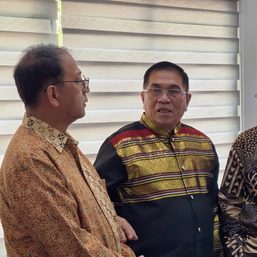
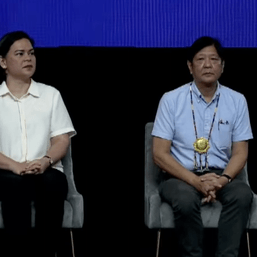
![[In This Economy] Is the Philippines quietly getting richer?](https://www.rappler.com/tachyon/2024/04/20240426-Philippines-quietly-getting-richer.jpg?resize=257%2C257&crop=194px%2C0px%2C720px%2C720px)
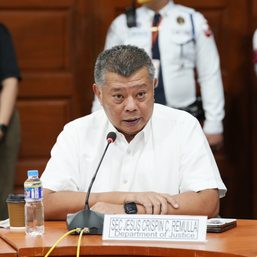
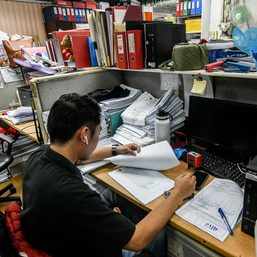

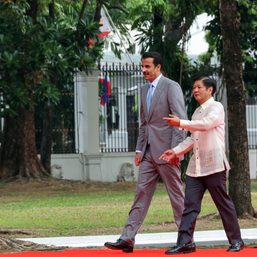
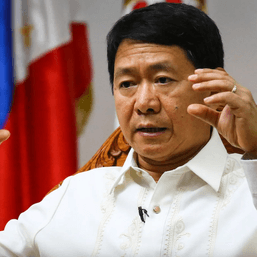

![[ANALYSIS] Danger signs in an oligarchy: Political violence and intrigue](https://www.rappler.com/tachyon/2023/08/oligarchy-duterte-marcos-july-30-2023.jpg?resize=257%2C257&crop_strategy=attention)
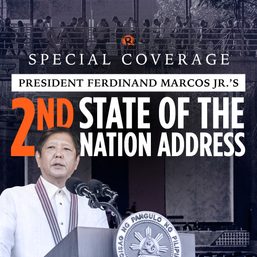


There are no comments yet. Add your comment to start the conversation.